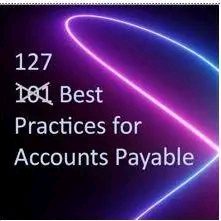The Top 5 Mistakes to Avoid When Selecting a Financial Planner

Selecting the right financial planner is a critical decision that can significantly impact your financial future.
A skilled financial planner can help you achieve your financial goals and secure your financial well-being.
However, making mistakes during the selection process can lead to costly consequences.
5 Mistakes to Avoid When Selecting a Financial Planner
In this article, we will elaborate on the top 5 mistakes to avoid when choosing a financial planner to ensure you make an informed and beneficial decision for your financial future.
1. Neglecting Credentials and Qualifications
One of the most common mistakes is not thoroughly evaluating a financial planner’s credentials and qualifications.
Ensure your chosen planner holds relevant certifications such as Certified Financial Planner (CFP) or Chartered Financial Analyst (CFA).
These designations signify a commitment to high ethical and professional standards.
2. Failing to Check for a Fiduciary Duty
A fiduciary duty means the financial planner is legally obligated to act in your best interest.
Some financial professionals are not bound by this duty, which can lead to conflicts of interest.
Avoid this mistake by explicitly asking if your planner operates as a fiduciary and always prioritize professionals who do.
3. Overlooking Experience and Specialization
Every individual’s financial situation is unique.
Overlooking a financial planner’s experience and specialization in your specific financial needs can be a costly mistake.
Whether you’re planning for retirement, managing investments, or tackling debt, seek a financial planner with a track record and expertise in your area of concern.
4. Ignoring Fee Structures
Financial planners can charge fees in various ways, including hourly rates, fixed fees, or a percentage of assets under management (AUM).
Ignoring or misunderstanding fee structures can lead to unexpected costs.
Clearly understand how your planner charges for their services and ensure it aligns with your budget and goals.
5. Skipping Background Checks and References
Rushing the selection process without conducting thorough background checks or seeking references from past clients is a grave error.
To gain confidence in your choice, ask for client references and research online reviews and ratings.
Hearing about others’ experiences can provide valuable insights.
FAQs
How do I find a qualified financial planner?
Finding a qualified financial planner starts with research. Look for planners with recognized credentials like CFP or CFA. Seek recommendations from friends, family, or colleagues, and conduct interviews to assess their qualifications.
What questions should I ask a potential financial planner?
Key questions to ask include:
– Are you a fiduciary?
– What is your fee structure?
– Can you provide references?
– Do you specialize in my financial needs?
How much should I expect to pay for financial planning services?
The cost of financial planning services can vary widely. It depends on the complexity of your financial situation and the fee structure of the planner. Be sure to get a clear understanding of the fees upfront.
Is it necessary to hire a financial planner, or can I manage my finances on my own?
Whether you need a financial planner depends on your financial goals, knowledge, and comfort level. While some individuals successfully manage their finances independently, a qualified planner can offer valuable expertise and guidance, particularly for complex financial situations.
Also Read: How Long Do Most Young Adults Stay with Parents?




